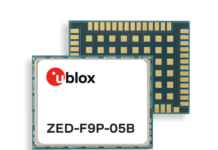
Wi-Fi is a staple for every travel or remote experience, and a now startup named Cabin has added the wireless networking to buses in an effort to transform them into “moving hotels”.
Transporting passengers from San Francisco to Los Angeles, these double-decker buses are outfitted with 24 beds, a lounge space, bathroom, AC vents, privacy curtains, and Wi-Fi. This hospitality transportation startup raised more than $3 million in seed funding—Cabin will start shuttling riders starting July 14th.
This reinvention of the luxury transportation experience highlights the demand for Wi-Fi everywhere and anywhere.
Cisco’s Country Digitization Acceleration efforts create long-term partnerships with a country’s national leadership, industries, and academia. Digitizing these countries and the cities within them help grow GDP, jobs, and innovation.
A part of this strategy includes creating smart cities. A fully-realized smart city communicates with both things and people through fixed and wireless connectivity.
Cisco recently helped connect the heritage-protected city of Copenhagen, aiding in building an infrastructure based on Wi-Fi. In a historic city like Copenhagen, finding the access points for connectivity can be difficult, since placing points on heritage-protected facades is impossible.
Cisco worked with the infrastructure for street and traffic lighting to set up wireless access points, framework that already existed in the company so that nothing new had to be constructed.
Wi-Fi is crucial for communication in every city, and Cisco’s Country Digitization strategy helps improve quality of life for citizens who need to connect. From roving hotels-on-wheels that have Wi-Fi, to historic cities that are being outfitted with network access points, the world is digitizing in new ways everyday.
By Stephanie Chan
Source: newsroom.cisco.com


















